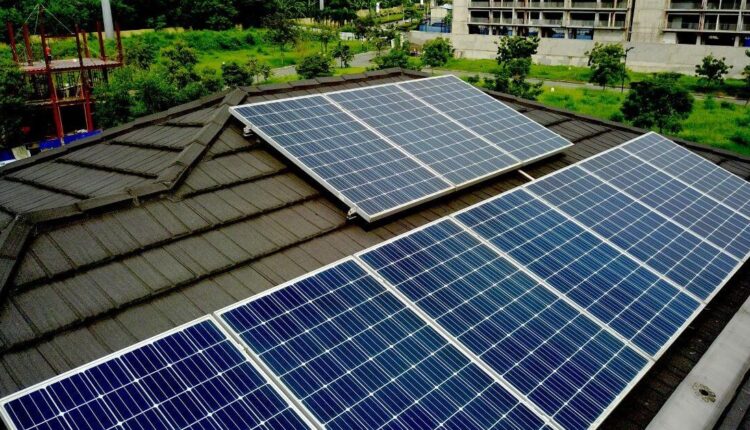5 Benefits of Combining Solar Energy and Battery Storage
What are the advantages of combining solar energy and battery storage?
- Energy independence
- Cost savings
- Increased reliability
- Environmental benefits
- Improved network stability
overview
- Solar energy is increasingly being combined with battery systems to increase reliability and efficiency, allowing companies to store renewable energy and use it even when sunlight is not available.
- Integrating solar energy with battery storage offers several advantages that make it a promising solution for both residential and commercial applications.
- As a leading solar provider, Solaric is committed to providing tailored solar battery solutions that enable companies to maximize their renewable energy potential while achieving sustainability goals.
Solar energy, once a standalone energy source, is now being combined with battery systems to create more reliable and efficient systems. This combination allows companies to use and store renewable energy, ensuring their operations continue to run smoothly even when the sun shines.
From reducing utility bills and improving energy independence to improving environmental sustainability and grid stability, let’s explore some of the most notable benefits of combining solar energy with battery storage and learn how Solaric – the country’s leading solar provider – is at the forefront of this revolution .
Energy independence
Solar panels generate electricity during the day, but without storage, excess energy produced is often wasted or fed back into the grid. By integrating battery storage, companies can store this excess energy and use it at night or on cloudy days.
For example, imagine a small manufacturing facility that operates both during the day and at night. During the day, the system’s solar panels generate more electricity than needed, which is stored in batteries.
When night falls, the system does not draw power from the grid but uses stored solar energy, reducing energy costs and maintaining continuous operation.
Cost savings
By storing excess solar energy during the day, businesses can avoid purchasing expensive electricity from the grid, especially during peak times when rates are highest. This strategy, known as peak-load shifting, allows companies to use stored solar power when demand and electricity rates peak, dramatically reducing electricity bills.
Additionally, many businesses incur demand charges, which are additional charges based on the highest electricity usage during a billing cycle. Battery storage helps manage these loads by providing energy during times of high demand, reducing the amount of electricity drawn from the grid.
Increased reliability
Traditional power sources are prone to failures and fluctuations that can disrupt operations and result in costly downtime. The benefits of combining solar energy and battery storage include ensuring a constant supply of energy in the event of grid failures or adverse weather conditions.
During a storm, for example, a grocery store that relies on refrigeration of perishable goods may experience power outages and spoilage of its inventory. However, with a solar system combined with battery storage, the store can continue to operate with the stored energy, maintain cooling and avoid losses. This added reliability not only protects against unexpected failures, but also increases confidence in operational continuity.
Environmental benefits
By using renewable solar energy, companies can significantly reduce their reliance on fossil fuels, resulting in lower greenhouse gas emissions and a smaller carbon footprint. This shift not only helps combat climate change, but is also in line with global efforts for a more sustainable future.
Battery storage also complements solar energy systems by allowing businesses to optimize their energy consumption and minimize waste. When solar energy is generated but not used immediately, it can be stored for later use instead of being sent back to the grid.
Improved network stability
Battery storage systems act as a buffer, allowing companies to store excess energy during sunny periods and release it during peak demand periods. This helps balance supply and demand on the grid and reduces the risk of blackouts or brownouts.
In addition, battery storage can provide grid operators with valuable services such as frequency regulation and load shifting. By quickly discharging stored energy during sudden spikes in demand, battery systems help maintain grid reliability.
With a more reliable network, businesses can operate without fear of unexpected power interruptions, resulting in higher productivity and reduced operational risks.
Key to take away
The combination of solar energy and battery storage offers significant benefits for companies looking to improve their energy management. This integration drives economic and ecological progress.
At Solaric, we offer customized solar battery solutions tailored to each company’s individual needs, helping them fully utilize renewable energy and achieve sustainability goals.
Contact us today to find out how we can help you integrate solar energy and battery storage into your operations, paving the way for a more efficient and sustainable future.



Comments are closed.